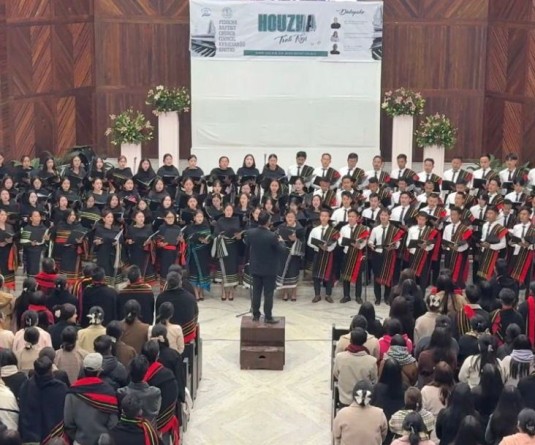
Commends Nagaland Govt’s initiative
DIMAPUR, JULY 18 (MExN): The Global Naga Forum (GNF) has issued a statement applauding the Nagaland Government's recent efforts to seek justice for the victims of the Oting massacre; and at the same time called for broader “constitutional reform.” The forum, in a press release, described the Nagaland Government’s initiative as a crucial step towards upholding constitutional principles and human rights within the Naga homeland.
A press release from the GFN meanwhile stated that the Oting massacre case brings to the forefront fundamental rights enshrined in the Indian Constitution, particularly Article 21 (right to life) and Article 14 (equality before law). The incident also raises critical questions about the federal structure of India and the autonomy of states in matters of law and order, it added.
It further observed that continued application of the Armed Forces Special Powers Act (AFSPA) in Nagaland “stands in stark contrast to these constitutional guarantees.” Its implementation, under the guise of addressing 'security threats', has resulted in numerous human rights violations. We question who truly benefits from AFSPA's continuance and who bears its brutal costs, the forum said.
It also noted that several Supreme Court judgments have reinforced the status of adivasis and tribes as original inhabitants, implicitly recognizing their indigenous status. “This judicial stance contradicts India's official position of not recognizing indigenous peoples, creating a legal paradox that needs resolution,” the GNF said.
It maintained that the UN Declaration on the Rights of Indigenous Peoples (UNDRIP) provides a framework for understanding and protecting indigenous rights. Articles 3, 4, and 5 of UNDRIP, emphasizing self-determination and autonomy, are particularly relevant to the Naga context, the forum added.
Further, the GNF said that the Oting case follows a “disturbing pattern of delayed justice, reminiscent of the Wuzu killings and Oinam killings.” This “systemic delay” erodes the Naga people's faith in the Indian judicial system and demands immediate redress, it said.
On constitutional mechanisms and federalism, the GNF said that Nagaland's filing of a writ petition in the Supreme Court is an indication to the state's commitment to constitutional remedies. “This action aligns with principles of cooperative federalism and asserts state autonomy in pursuing justice for its citizens.”
The GNF reminded India's international obligations, stating that India, as a signatory to various international human rights treaties, has an obligation to uphold these standards. The treatment of the Oting case will be a litmus test for India's commitment to these international norms, it observed.
It said that this pursuit of justice must be viewed within the larger context of the Naga political question and “reinforces the urgent need for a just and lasting solution that respects Naga rights, identity, and aspirations.”
The forum urged the Government of India to expedite the judicial process for the Oting massacre case; repeal AFSPA immediately and unconditionally; acknowledge and rectify its contradictory stance on indigenous peoples; follow the examples set by countries like Canada, New Zealand, and Australia, as well as the Vatican’s recent repudiation of the Doctrine of Discovery; cease the “charade of disingenuous dialogues and commit to a sincere, transparent, and equitable process to address the Naga political question;” and take concrete steps to rebuild trust with the Naga people by holding accountable all perpetrators of human rights violations, regardless of their position or affiliation.





